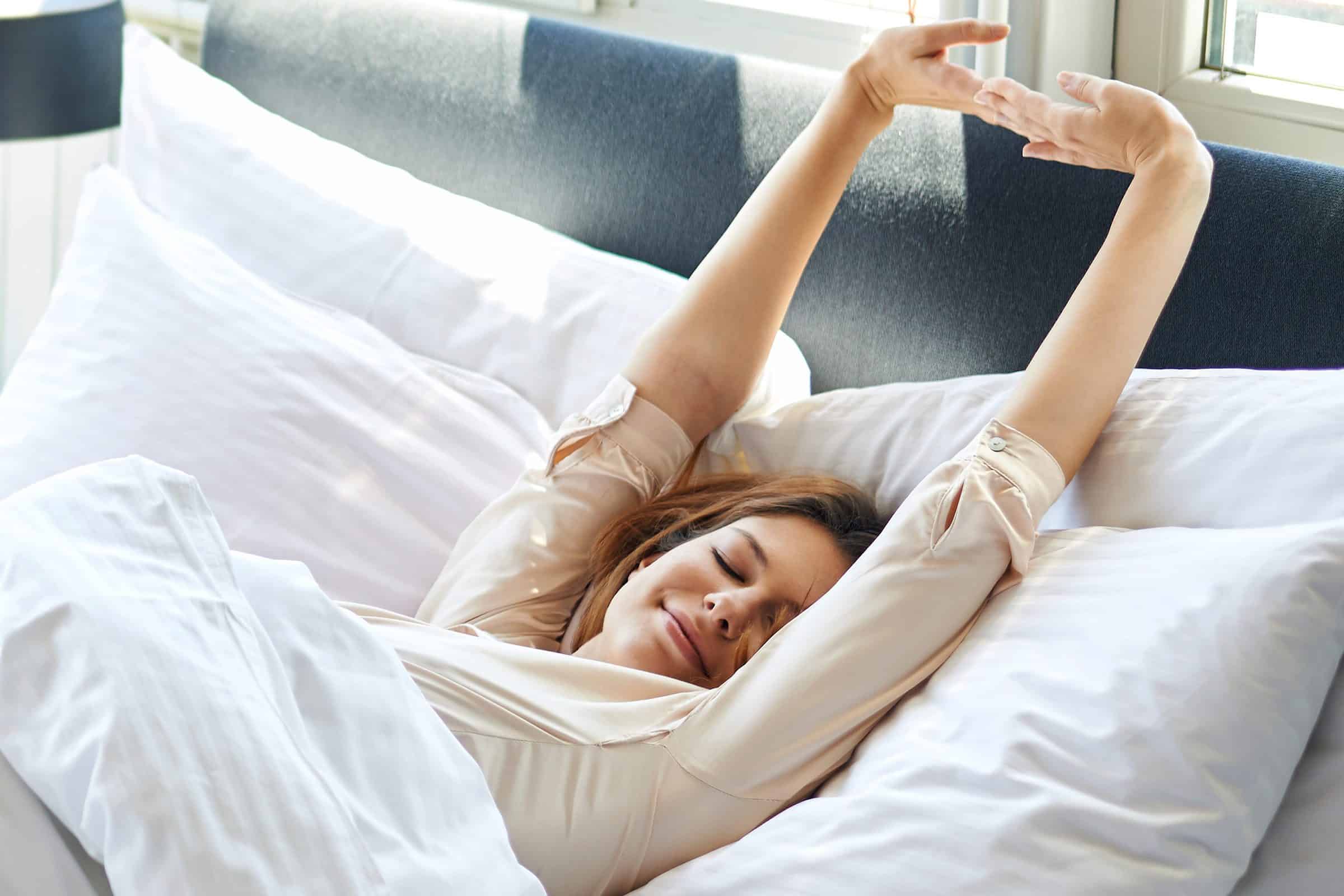Latest News
Tips For Better Sleep

1. Sleep In 90-Minute Cycles
One of the things you should be doing is trying to optimize your sleep. As the professor explains in the video below, your brain continually goes through 90-minute cycles on repeat.
As soon as you fall asleep, you enter what’s known as a light stage. Then, you progress further into a deeper sleep. Eventually, you reach a very deep sleep known as the REM stage. Eventually, it cycles back around towards a lighter sleep. Thus, if you end up timing your wake cycle at a stage when you are supposed to wake up, you’ll feel much more invigorated than you would if you woke up in the middle of a deep sleep stage.
The best way to achieve this type of optimized wakeup is by timing your sleep. Ideally, you want to set your bedtime based on when you will be waking up. Try to count backward in 90-minute cycles. For instance, if you are someone who regularly wakes up at 7:30 in the morning, you’ll want to try to fall asleep towards midnight or around 10:30 at night.
2. Take a Hot Shower
There have been numerous studies that have shown how much of a role temperature regulation plays in getting good sleep according to Jessa Gamble. Our body has a natural clock that dictates our mental and physical health. Our body uses this clock to prep our body to both prepare us to wake up and sleep.
Because a lot of us don’t go to sleep when we should, our body doesn’t function properly. Our body typically drops our internal body temperature to the right level for optimal sleep. However, when you stay up later than usual, your body doesn’t do the same thing. By taking a hot shower, you can help facilitate the lowering of your body temperature. This is because our bodies cool down after we leave the hot shower which can trick our body and mind into being sleepy. Ensure that you get into a comfortable bed, read these Costco mattress reviews.
3. Avoid Artificial Light
Blue light is artificial that is emitted by our devices. This is true for our televisions, mobile phones, and tablets. It’s one of the main reasons we have a difficult time falling asleep at night. Unfortunately, exposure to blue light can stimulate the body and mind. It can trick your mind into thinking it’s daytime because it closely resembles it. Thus, it can keep our body from producing melatonin which is our body’s sleep hormone. Thus, when you expose yourself to blue light-emitting devices, it can shift your body’s clock and cause you trouble when you try to fall asleep.
To get rid of this negative impact, you want to avoid blue light before bedtime. Ideally, you should be avoiding screens for as much as 2 to 3 hours before going to sleep.
Also, you won’t shut off all of the lights in your bedroom when you are looking to prepare yourself for sleep. Doing this will get you in the right mindset and it can help to tell your body that it’s time to prepare for sleep. A lot of scientists believe that you should only be using your bed to either sleep or have sex. Therefore, you should remove your television from your room and avoid watching Netflix or other streaming services while in bed.
4. Get Rid Of Your Clock
One of the things that can keep you from being able to do this is your bedside clock. Having a clock can remind you of the structure in your life and it can keep you from being able to fall asleep naturally. Also, the clock will likely emit light which can cause you from having complete darkness in your room. You want to have your room as dark as possible.
5. Write Down Your thoughts
If you cannot find yourself going to sleep easily, you’ll want to remain calm. Try to calm yourself down and reduce the stress you are experiencing. Rather than getting worked up about how much you have to do the next day, try to focus on putting yourself to sleep. Try to get rid of all of your thoughts before laying down. A good practice to complete before bed would be writing down a list of things you want to accomplish the next day. This can help you get rid of the thoughts that can keep you from falling asleep. You can use a project management software or tool that can help you do this. That way, you can keep your thoughts free at night.
Harper Harrison is a reporter for The Hear UP. Harper got an internship at the NPR and worked as a reporter and producer. harper has also worked as a reporter for the Medium. Harper covers health and science for The Hear UP.










